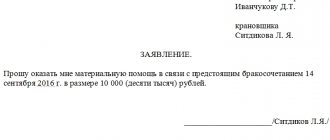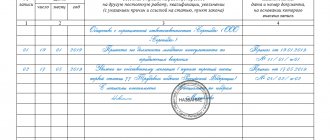Which family is considered to have many children in 2020?
The concept of a large family is not enshrined in any of the federal regulations. The decree of the President of the Russian Federation, establishing support measures for them, states that the categories of families that are classified as large families are determined at the level of regional authorities (clause 1 of the decree).
When resolving this issue, public bodies of the subject should be guided by:
cultural and national characteristics of the area;
demographic situations;
socio-economic development of the region;
financial capabilities of the regional budget.
In most territories, regions, and republics of Russia, in order to be recognized as a large family, it is necessary to have three or more minor (under 18 years of age) children. For example, the Social Code of St. Petersburg states that a family with three or more children under 18 years of age . Some regions expand the concept. In the law of the Moscow Region and in the Social Code of the Leningrad Region, large families are understood as families where there are three or more children under 18 years of age, or where children from 18 to 23 years of age are studying full-time in an educational institution. Some entities set more stringent requirements. In the law on social support in Moscow, for the status of large families, three or more children are needed until the youngest of them reaches 16 years old and 18 years old for children studying in an educational institution.
The concept of “family” includes not only children and married parents, but also families:
where there is only one parent (incomplete);
where the mother and father are not officially married (they are divorced, living in a “civil” marriage);
where one of the parents is a stateless person or a foreign citizen;
with adopted children, who are under guardianship and trusteeship.
Important
Children in respect of whom parents have been deprived of parental rights (or limited in them), who are fully supported by the state (boarding schools, places of deprivation of liberty), recognized as fully capable until the age of 18 as a result of emancipation, are not taken into account as part of the family.
Social support measures
The list of social benefits and support measures that should be provided to large families is currently detailed in Decree of the President of the Russian Federation No. 431. In accordance with the provisions of this regulatory act, the main social benefits available to large families include:
- a discount of at least thirty percent on utility bills at the place of residence of a large family , and if we are talking about our own house, which does not have central heating, then a discount is also provided on the coolants used, which provide heating for such a house when living in it large family;
- granting the right of free travel in city or municipal transport for children under the age of sixteen , and in cases where we are talking about children who attend country camps for children's recreation or sanatorium-resort institutions, the right of free travel in railway transport is not granted only for the child traveling to the vacation spot, but also for one adult accompanying him (the adult receives the right to free return to his city from the child’s vacation spot);
- the right to receive free meals in school educational institutions , as well as a discount on payment for preschool and additional school education institutions (the amount of the discount varies depending on the child’s account it is provided for, but for preschool education it is no more than seventy percent of the cost, and for additional school education - no more than thirty percent);
- provision of free school uniforms or clothes replacing them , as well as free sports suits for attending relevant classes in school-type educational institutions, regardless of what status is assigned to a particular educational institution;
- monthly free visits to various cultural institutions , if such visits are carried out by children in accordance with their age (that is, the events correspond to the age limit). Otherwise, parents will have to pay for tickets to such events personally;
- provision of land plots for building a house under an individual housing construction project , as well as for farming, if such actions are aimed at improving the material well-being of the family, and the plot itself will be used exclusively for its intended purpose;
- providing discounts or assistance in purchasing at preferential prices the necessary building materials for the construction of their own home in which a large family will live;
- assistance in the implementation of approved business models , if the planned profit from the sale of such a business is designed to improve the well-being of a particular family. At the same time, as part of assistance for the implementation of a business, several areas that are carried out by the state should be considered, namely: the allocation of land plots, the provision of tax discounts for the period of business formation, the provision of interest-free loans, loans for the development of an established business model, benefits for the rental of land plots or equipment necessary to conduct a particular type of business.
In addition to the listed types of assistance from the state in the form of specially adopted social support measures, the state at the regional level has provided a number of additional social guarantee measures for large families.






